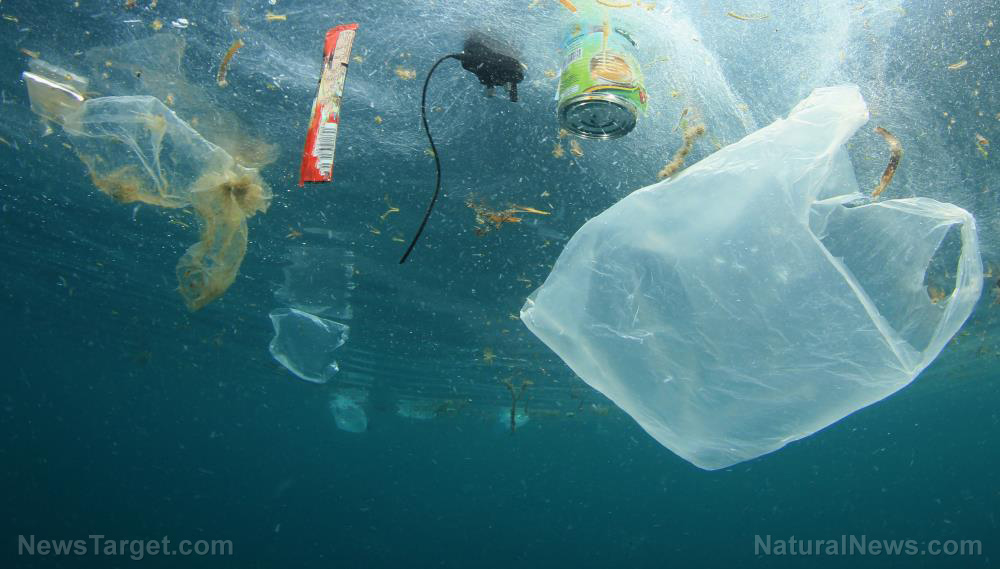Long-term study looks at impact of ocean pollution across coastal environments and communities
04/13/2019 / By Edsel Cook

Researchers recently published the results of two years of studying ocean garbage that washed up on the shores of the Gulf states. They found that plastic is the most common type of trash; that Texas ends up with the most coastal debris; and that spring and summer months are the worst.
Trash in the ocean and along the shoreline is responsible for considerable concerns. The most obvious effect is how the presence of debris made polluted waters and shorelines look ugly and smell bad.
Hand in hand with this aesthetic effect is the harm it inflicts upon the environment. Ocean garbage disrupts fragile ecosystems and harms marine animals that mistake the toxic and dangerous substances for food.
Many humans depend on the bounty of the sea for sustenance. But trash taints the fish and other food animals that humans catch and consume, making it a threat to human health.
Finally, ocean trash exerts serious effects on the economy of the country with the coastline. Governments spend time and money to clean up beaches and must provide emergency assistance to communities whose food and livelihood have been compromised by excessive amounts of garbage. (Related: Plastic trash polluting our oceans is expected to double by 2025…what is being done to stop this global crisis?)
Barrier islands intercept a good chunk of the trash intended for the coast
Worried about the far-reaching effects of ocean garbage on the shorelines of the Gulf of Mexico, Dauphin Island Sea Lab (DISL) and the Mission-Aransas National Estaurine Research Reserve (MANERR) conducted a two-year long study into the matter. They selected 12 separate sites scattered across nine barrier islands with North Padre Island, Texas forming one end of the island chain and Santa Rosa, Florida serving as the opposite corner.

A barrier island is a lengthy and slender stretch of sand that is aligned parallel to the coast of the mainland. As their name implies, barrier islands shield the coast from the full force of waves during rough weather. Their position allowed them to intercept a considerable amount of wave-borne trash destined for the coast.
Each island was part of a Gulf state. The study therefore covered Texas, Louisiana, Mississippi, Alabama, and Florida.
Every month, researchers from both organizations would keep track of marine debris that ended up on the shores of the barrier islands. They sorted out the trash by type, the number of times it appeared, and their location.
The study lasted from February 2015 to August 2017. The next two years were spent evaluating the data. The researchers published their findings in the scientific journal Marine Pollution Bulletin under the title “Accumulation and distribution of marine debris on barrier islands across the northern Gulf of Mexico.”
Texas gets the most garbage, which is usually plastic and peaks during spring and summer
Based on the results of their study, the DISL-MANERR research team reported that Texan barrier islands collected the most ocean garbage among the Gulf states. Surveyed sites on the shores of Texan barrier islands contained as much as ten times the number of trash that ended up on the other islands.
The majority of the trash was comprised of plastic. Depending on the location, plastic could make up 65 to 95 percent of the total amount of garbage. The most numerous items were bottles and bottle caps, straws, and fragments of larger items.
After comparing the amount of trash observed during different months and seasons, researchers stated that the spring and summer months witnessed the highest amounts of ocean garbage. They attributed this to the increased number of people who are visiting beaches and coastal waters during these seasons.
Sources include:
Submit a correction >>
Tagged Under:
This article may contain statements that reflect the opinion of the author





















